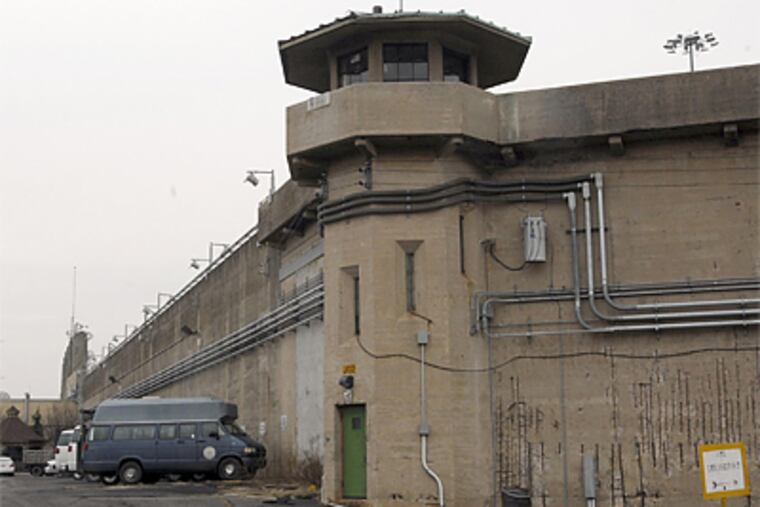Karen Heller: A messed-up justice system
"If the United States leads the world in incarceration," says civil-rights lawyer David Rudovsky, "Philadelphia leads the United States."

"If the United States leads the world in incarceration," says civil-rights lawyer David Rudovsky, "Philadelphia leads the United States."
We have a higher percentage of our citizens in prison than anybody else, 3.5 times more than New York City.
We're No. 1!
We've won the inmate championship. And our prize is the chance to spend $230 million on prisons every year.
This is one business we should be doing everything to unload.
Prisoners are a growth industry. "Booming," says prison commissioner Lou Giorla.
It's not hard to see why. When so many of the city's population are woefully uneducated - almost 30 percent lack high-school degrees - decent jobs are hard to come by.
The drug-dealing business, however, is always hiring.
Spend a day inside one of the Court of Common Pleas' four jury-waiver courtrooms and the parade of criminals never stops. One defendant, aged 41, had three trials scheduled simultaneously last Wednesday, from three drug-selling arrests in six weeks. He'd kept out of trouble for 10 years, then fell back because he couldn't find work.
Nonviolent defendants such as he, charged with petty drug dealing, constitute the majority of cases in these courts. If convicted, felons face mandatory minimum sentencing: one to two years for selling two grams or more of cocaine or heroin for the first offense, three to six years for subsequent offenses.
A packet of sugar is four grams.
The criminal division heard 15,000 felony cases last year, 80 percent of them related to drugs.
"We're not doing the things that would prevent the market from growing," says Judge Pamela P. Dembe, chief of the criminal trial division. "We operate a justice system that is based on a very old model, a punitive model."
Punishment is not where we should put money or manpower.
This spring, Philadelphia's prisons made history - by having more prisoners in jail than at any time in the last three centuries, 9,334 prisoners, at an annual cost of $30,000 each. The facilities were designed to hold 6,433.
Who says we don't make anything anymore? We make prisoners.
Two-thirds of inmates are awaiting trial, half for minimum drug charges. Some wait as long as two years for their cases to be heard.
It's an expensive mess. Fifteen percent of prisoners are mentally ill. More than 2,000 are held three to a cell designed for two; one of them has to sleep in a plastic shell on the floor. Due to overcrowding, guard overtime will hit $35 million this month.
Rudovsky is suing the system, on behalf of 11 named inmates, stating that overcrowding violates their civil rights. He's been fighting this issue since 1970, when the prison population was a mere 2,800.
"Building new prisons is not a good idea. You build them, you'll fill them," Rudovsky says.
"We're not going to win the war on drugs in the court system," Dembe argues. By then, it's too late.
We need to find people jobs, so they can earn $30,000 a year instead of our spending that on a cell.
A quarter of Philadelphia's budget goes to criminal justice, almost $960 million on cops, courts and prisons. And 80 percent of the criminal justice system deals with the nasty tentacles of drugs. Do the math. That's $767 million to deal with problems at the end of the line, not the beginning, before they all clot the system.
That money could be spent on day-care. That money could be spent on rec centers. That money could buy early childhood education and job-training centers and mental-health care.
That money could turn girls and boys into educated, law-abiding citizens, and transform potential petty dealers into taxpaying workers.
Mayor Nutter and the new administration are trying, but there needs to be more effort, more money and more manpower to wipe out the prison industrial complex, so the city can reduce the annual drag on the budget fighting a war on drugs that no one is winning.